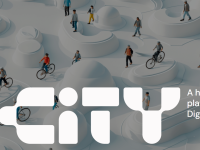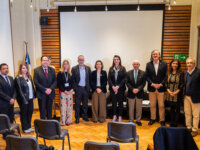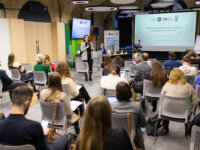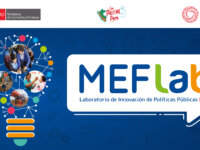vCity is a human-centric platform for urban digital twins, with the goal of improving life quality within the city by assisting urban planners make evidence-driven urban decisions. vCity's innovative approach combines 1) simulation by designing virtual replicas of the cities, 2) what-if scenario tools in urban planning and 3) getting the "pulse" of the city from digital platforms for citizen participation.
Case Study Library
Where innovations are collected and shared to disseminate and replicate good ideas

Innovations:
0
This website, as well as any data and map included herein, are without prejudice to the status of or sovereignty over any territory, to the delimitation of international frontiers and boundaries and to the name of any territory, city or area.
The program offers an online Human Rights course for civil servants with modules from 15 Public Administration entities. It includes initial and final webinars featuring the Ombudsman and three civil society associations, respectively. Graduates propose initiatives to implement Human Rights, fostering a "Network of Ambassadors for the Promotion of Human Rights in Public Administration." A Best Practices Guide will highlight implemented projects.
Futures and foresight methods are fundamental tools to inform decision-making and public policy in order to consider a wide range of future possibilities. The creation of a Latin American Future Network seeks to articulate existing efforts from many countries and enhance capacity building in the region, since capacities are still not well developed. This will benefit citizens by improving public sector services and future-proofing policies aimed at the population wellbeing.
The UNDP in Ukraine training on a human rights-based approach in public policy design helped public servants who are involved in the digitalisation sphere learn how to develop state policies and electronic services based on principles of human rights and gender mainstreaming. It helped them dispel myths and learn the basic requirements, which resulted in more inclusive public services developed for Ukrainian citizens.
13 Fellows from 10 different African countries in 8 institutions of the African Union to build a culture of digital innovation: the AU Digital and Innovation Fellowship is the first supranational initiative to make administrative processes in the African Union more user-centred and effective. The challenge: 12 months to integrate innovation into the African Unions processes and products. The results: 11 products in diverse AU institutions and units. And that is just the start!
The Government of Canada is experimenting writing existing laws and proposed regulations into code. Encoding rules allows us to run legal simulations in the regulatory drafting room, which helps us detect ambiguities, loopholes, and gaps in the rules that often go unnoticed. However, existing tools designed by and for programmers are not intuitive for rule-makers. In response, we set out to develop one – an open-source Rules as Code tool called Blawx.
India has several small cities lacking resources which has prevented them from offering digital services. To reduce the digital divide amongst the towns and cities and to ensure availability of digital services across the urban landscape of the country, NUDM attempts to offer a free, ready-made, and open-source software platform to cities and/or collectives (states). This platform is a choice-based model that benefits cities of varied maturity levels and preserves their existing investments.
Zaragoza City Council has launched a new electronic citizen participation platform with the aim of involving its citizens in public policy decisions and in the design of its services. It provides an interactive space for residents to actively contribute, strengthening the collaboration between the administration and the community, thus fostering a more inclusive and transparent management.
The Network of Public Services (NPD) was established to collectively support and inspire public services, share knowledge and expertise and to lobby policy and politics. The NPD is an informal network of over 80 public services. Together, we present a strong voice towards politics and policy to make our wishes feasible, aiming for improving public services for citizens and entrepreneurs.
In Peru, the lack of systematic evidence hinders efficient budget allocation and innovative public policy. The MEFLab addresses this by conducting experimental evaluations of programs and policies that benefit the Peruvian Ministries and the citizens through improved public services. The lab's innovation lies in using existing evidence, creativity, and collaboration to design new public policy solutions and promote evidence-based decision-making.





